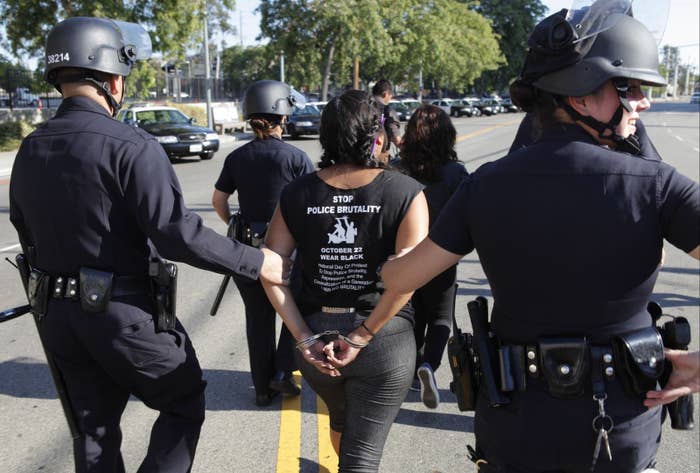
California on Wednesday became the first state to require that undocumented immigrants be told of their right to an attorney before being interviewed by federal immigration authorities while in custody.
The Transparent Review of Unjust Transfers and Holds Act, parts of which goes into effect in 2017, was sign by Gov. Jerry Brown, who called it a "measured approach to due process and transparency principles."
The law, commonly referred to as the Truth Act, also requires that police departments give an immigrants’ attorney or advocate the same information they shared with US Immigration and Customs Enforcement (ICE). A public forum must also be held every year to disclose local law enforcement’s role in federal immigration policy. Immigrants will also be advised that they don't have to speak with ICE agents.
"Behind closed doors, ICE has inserted itself into the fragile relationship between local police and immigrant communities by requesting local police take on the role of federal immigration agents,” said California Assemblyman Rob Bonta, who authored the Truth Act. “With today’s action, California leads the nation with sensible immigration policies that protect the rights of immigrants and shine a light on flawed federal priorities.”
Jessica Karp Bansal, staff attorney with the National Day Laborer Organizing Network, said the public, for the most part, is unaware that such basic rights are not afforded to immigrants facing deportation.
"It's shocking, the level of due process violations in immigration given the stakes are so high," Bansal told BuzzFeed News.
Colorado and New York City have similar policies in place, but are not the result of state legislation, Bansal added.
Unlike in criminal proceedings immigrants will not be able to get an attorney if they can't afford one. A report, which analyzed 1.2 million deportation cases, released Wednesday by the American Immigration Council found that access to counsel for immigrants is scarce and that without an attorney their chances of getting a favorable ruling is lower.

In a bill signing message, Brown said the original bill would have constrained local police from communicating with federal immigration officials, noting that they would have been prevented from notifying ICE they had someone in custody they were seeking.
Local police departments were already weary of working with ICE.
Over the years, more than 320 jurisdictions in the US have passed ordinances or issued executive actions prohibiting local officials from working with ICE. Some were driven in part by a federal judge’s ruling last year in Oregon, which found an immigrant's civil rights were violated when she was detained on an ICE "hold," essentially a request for local officials to keep someone in custody until the federal agency can reach them.
